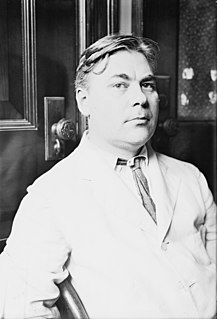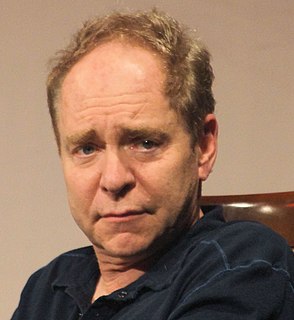A Quote by Don Marquis
Insects have their own point of view about civilization a man thinks he amounts to a great deal but to a flea or a mosquito a human being is merely something good to eat.
Related Quotes
From one point of view we can say that we have human bodies and are practicing the Buddha's teachings and are thus much better than insects. But we can also say that insects are innocent and free from guile, where as we often lie and misrepresent ourselves in devious ways in order to achieve our ends or better ourselves. From this perspective, we are much worse than insects.
Technologically, modern man does everything he can do-he functions on this single boundary principle. Modern man, seeing himself as autonomous, with no personal-infinite God who has spoken, has no adequate universal to supply an adequate second boundary condition; and man being fallen is not only finite, but sinful. Thus man's pragmatically made choices have no reference point beyond human egotism. It is dog eat dog, man eat man, man eat nature.
A good score should have a point of view all of its own. It should transcend all that has gone before, stand on its own two feet and still serve the movie. A great soundtrack is all about communicating with the audience, but we all try to bring something extra to the movie that is not entirely evident on screen.
It is neither just the religious, the spiritual, the power-hungry, the evil, the ignorant, the corrupt, the Christian, the Muslim, the Hindu, the Buddhist, the Jew, nor the atheist that makes a hypocrite, but being a human being. Any man who thinks himself to be free of hypocrisy while committed to cherry-picking others for such, I am confident, the Almighty can prove to him a great deal of his own hypocrisy even beyond his earthly comprehension.
In my view, philosophers have shown a great deal more respect for the first-person point of view than it deserves. There's a lot of empirical work on the various psychological mechanisms by way of which the first-person point of view is produced, and, when we understand this, I believe, we can stop romanticising and mythologising the first-person perspective.
Our understanding of the thought of the past is liable to be the more adequate, the less the historian is convinced of the superiority of his own point of view, or the more he is prepared to admit the possibility that he may have to learn something, not merely about the thinkers of the past, but from them.
[T]he more clamour we make about 'the women's point of view', the more we rub it into people that the women's point of view is different, and frankly I do not think it is -- at least in my job. The line I always want to take is, that there is the 'point of view' of the reasonably enlightened human brain, and that this is the aspect of the matter which I am best fitted to uphold.
So, that was Nature's way. The mosquito felt pain and panic but the dragonfly knew nothing of cruelty. Humans would call it evil, the big dragonfly destroying the mosquito and ignoring the little insects suffering. Yet humans hated mosquitoes too, calling them vicious and bloodthirsty. All these words, words like 'evil' and 'vicious', they meant nothing to Nature. Yes, evil was a human invention.
A man’s ignorance sometimes is not only useful, but beautiful - while his knowledge, so called, is oftentimes worse than useless, besides being ugly. Which is the best man to deal with - he who knows nothing about a subject, and, what is extremely rare, knows that he knows nothing, or he who really knows something about it, but thinks that he knows all?







































